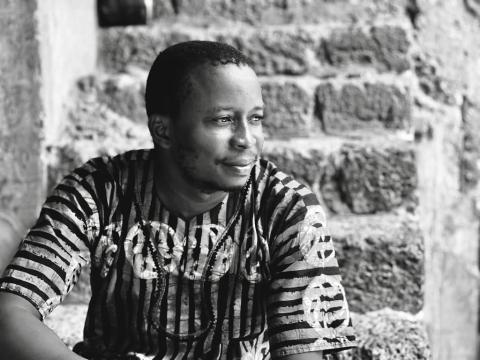By Saio Marrah
Artisanal Fishermen in Sierra Leone have accused industrial fishing vessels mainly operated by Chinese and Koreans of illegal fishing practices.
This was revealed at the launch of Sierra Leone Film Summit, that screened a documentary with the title ‘The New Boat’ produced by ‘Freetown Media Centre. The event was held at the Freetown City Hall Auditorium on Friday 31st March, 2023.
The said illegal practices which mostly happens at night, include the non-adherence of marine protected areas, indiscriminate cutting of mangroves and inshore exclusive zone, in contravention of rules and regulations that govern both the artisanal and industrial fishers.
The said illegal practices which mostly happens at night, include the non-adherence of marine protected areas, indiscriminate cutting of mangroves and inshore exclusive zone, and contravening rules and regulations that govern both the artisanal and industrial fishers.
The 41-minute-long documentary also depicts how the country lacks effective surveillance to monitor the illegal activities of those vessels and that the local people that venture to embark on the surveillance do so risking their lives.
These alleged acts have in turn lead to scarcity of fish, loss of employment, accumulation of the country’s debts, poverty, forceful migration to neighbouring countries, increase in teenage pregnancy as well as school dropouts.
A fishmonger, Aminata Sesay, was seen narrating how the scarcity of fish forced the father of her son to migrate to Guinea, where he has established another home and family with three children.
Another unnamed fishmonger also narrated how her husband left her with three kids and travelled to Guinea over 12 years now.
Other challenges highlighted include the adverse effects of climate change, illegal sand mining, indiscriminate disposals of plastics, and the use of seaside as refuge disposal or centre for detonating explosives.
The Director of the documentary, Lansana Mansaray who said he grew up in a fishing community, said fishing activity enabled him to sponsor his own education.
Mansaray said he is using the documentary to help curtail most of the emerging challenges in those fishing communities that he said were doing well before.
He said the collapse started about 15 years ago immediately when Sierra Leone was issued a yellow card, preventing the country from selling its fish to the European Market.
He said when that ban was instituted the country faced challenges and cited the country’s weak surveillance and enforcement measures. He however acknowledged that most of the industrial companies are registered with government, but raised the concern about their activities in the environment.
According to him, they are licensed to fish in certain zones but that “at night what they do is on their own. They do whatever they feel like doing, they go into the protected riverine areas, and just fish, using the illegal nets”.
He said that is adding burden on the already existing struggle that the fishermen are struggling.
He said the placement of the yellow card on the country has consequently lead to those fishing companies in Sierra Leone, taking the country’s to the International Markets with the lebell as being produced from other countries. He said that is also resulting to the country losing forex.
Mansaray noted that even though there have been some efforts by both government and non-governmental organsations, but pointed out there have not been a meaningful effort in retaining the country’s status in selling to other international markets including the European market.
He said they wish to build movement that will inspire Sierra Leoneans to know the dubious acts happening at the country’s sea and that in turn those communities will be able to force politicians to make it a critical point in their manifesto in addressing those issues.
A document revealed that over 500,000 Sierra Leoneans depend on fishing activities and that over 60% of about 7.5 million populations got their protein from fish.
Copyright (c) 2023 Politico (03/04/23)








